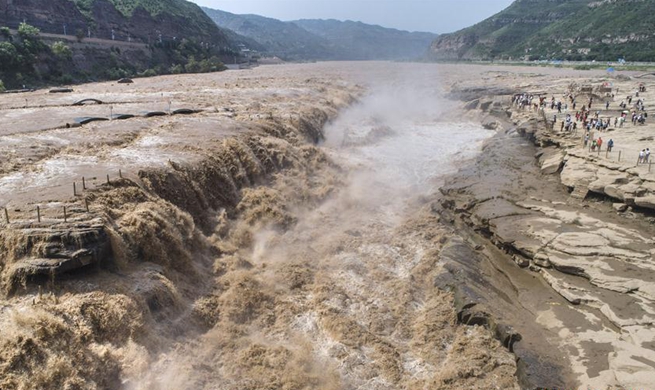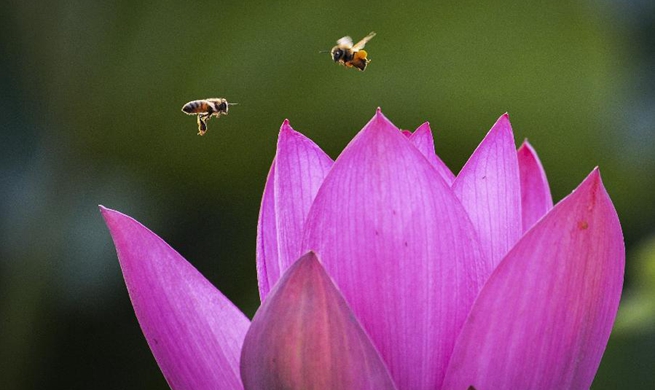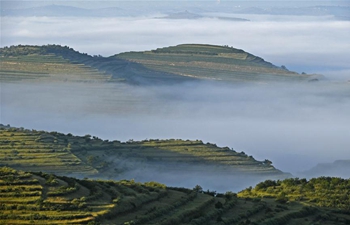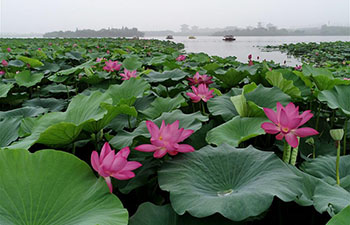LONDON, July 19 (Xinhua) -- Environment officials in Britain issued a warning Thursday as potentially harmful algae was found in lakes in one the country's top scenic areas, the English Lake District.
The Environment Agency (EA) confirmed that Blue Green Algae is present in four likes, including the best known Lake Windermere as well as Ullswater, Coniston Water and Killington Reservoir.
Around 16 million tourists a year visit the Lake District for its stunning scenery and hillside walks.
All four have tested positive for the Algae (cyanobacteria), posing a risk to the health of people and animals, said EA in a statement issued Thursday.
With sampling taking place on a weekly and monthly basis, a number of other locations have also been tested, but so far have come back negative.
"As welcome as the dry weather is for some, it is obvious that with higher temperatures and prolonged low rainfall that some areas of the natural world are suffering and the increase in Blue Green Algae across the usually damp Lake District is just one consequence of this," said the EA statement.
EA spokesman Jim Ratcliffe said: "Blue Green Algae is a completely natural summertime occurrence, however it can be toxic and as such, users of these lakes must remain cautious. As well as having a negative effect on the appearance, quality and use of the water, it can also move around -- you could see it one day, but it may have moved the next."
Some types of algae, such as blue-green algae, form blooms and scum which can result in the production of toxins. The toxin producing blooms are called Harmful Algal Blooms and can be harmful to wild animals, farm livestock and domestic pets. In humans, they have been known to cause rashes after skin contact and illnesses if swallowed.
The Lake District is in an area covered by United Utilities which this week announced Britain's first ban on hosepipes to conserve water.













